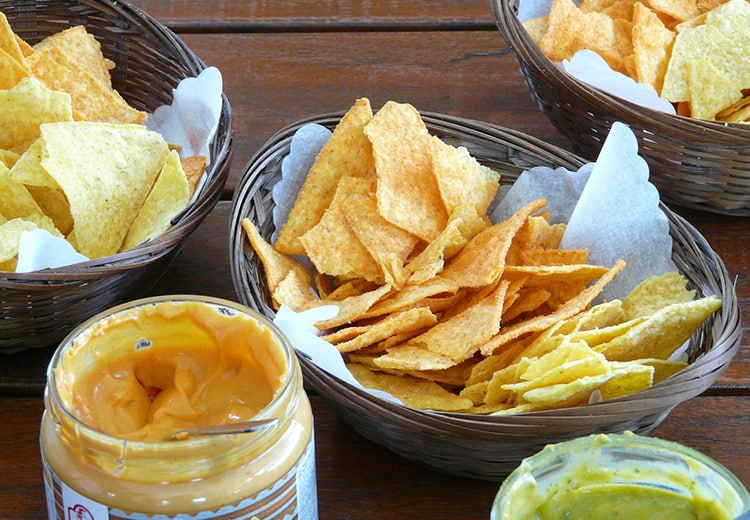You probably already know sugar isn’t great for you. It can lead to weight gain, rot teeth, increase the risk of type 2 diabetes, and increase risk of death by heart disease, even if you aren’t overweight. Sugar has also been linked to larger waistlines, an increased risk of cancer, and a decreased lifespan.
Here’s what you may not realize: Simply cutting out the one lump or two in your daily coffee isn’t going to drastically change your sugar intake. According to new research published in the journal BMJ Open, an astounding 90% of the “added sugar” Americans eat comes from “ultra-processed” foods.
What the research says
First, let’s break down the jargon in this study:
- Added sugar: Added sugar refers to sugars that don’t naturally occur in real foods. For example, milk and fruit both contain natural sugars. For most people (diabetics may be an exception), natural sugars aren’t a huge concern when it comes to losing weight.
- Ultra-processed foods: This latest study broke foods down into categories based on how much they’re processed between the farm and your plate. Foods like eggs, meat, fruits, vegetables, pasta, and milk were all categorized as unprocessed or minimally processed. Meanwhile, canned foods, cheese, and other foods that include preservatives were considered “processed foods,” and ingredients used for cooking, like oil, table salt, and sugar, were given their own category. Everything else (read: chips, sugary cereals, soda, frozen dinners, and more) is considered ultra-processed.
The study looked at a sample group of Americans’ overall calorie consumption, their intake of ultra-processed foods, and the amount of added sugar they consumed. The results? Ultra-processed foods contain eight times more added sugar than plain old “processed” foods. Moreover, ultra-processed foods account for nearly 60% of our total calorie intake every day. Sixty percent. In other words, calorically, we’re eating more junk food than healthy and mediocre-quality foods combined. Unsurprisingly, the more ultra-processed foods people ate, the more added sugar they ate.
What it means for you
The USDA recommends that no more than 10% of our daily calories come from added sugar. The study found that those who ate the most ultra-processed foods had the most trouble staying within this guideline.
But counting your added sugars every day (and then doing the math to calculate what percentage of your overall calorie intake is comprised of added sugar…) would be exhausting, right? Instead, simply reducing your intake of ultra-processed foods is a quick and easy way to keep added sugar intake in check. As the study found, the majority of people who ate the least ultra-processed food stayed within the 10% guideline — easy peasy!
How can you tell if a food is ultra-processed? As researchers put it, ultra-processed foods, “Include food substances not used in culinary preparations, in particular, flavors, colors, sweeteners, emulsifiers and other additives used to imitate sensorial qualities of unprocessed or minimally processed foods and their culinary preparations or to disguise undesirable qualities of the final product.” You read that right; ultra-processed foods use dyes and flavorings to imitate real food or disguise the unpleasant qualities of the food you’re actually eating — yuck!
Most importantly, keep in mind that added sugars aren’t limited to sweets. Many foods that don’t seem sweet at all (take frozen dinners, for example) actually have tons of sugar.
The best way to avoid these added sugars and ultra-processed foods is to shop the perimeter of the grocery store, looking for vegetables, fruits, meats, dairy, eggs, and other naturally occurring foods. When you look at an item, ask yourself: “Can I picture how this got from the farm to my plate?”
What’s your top tip for avoiding added sugars?
Real results with a personalized weight loss program
Take the quiz!





